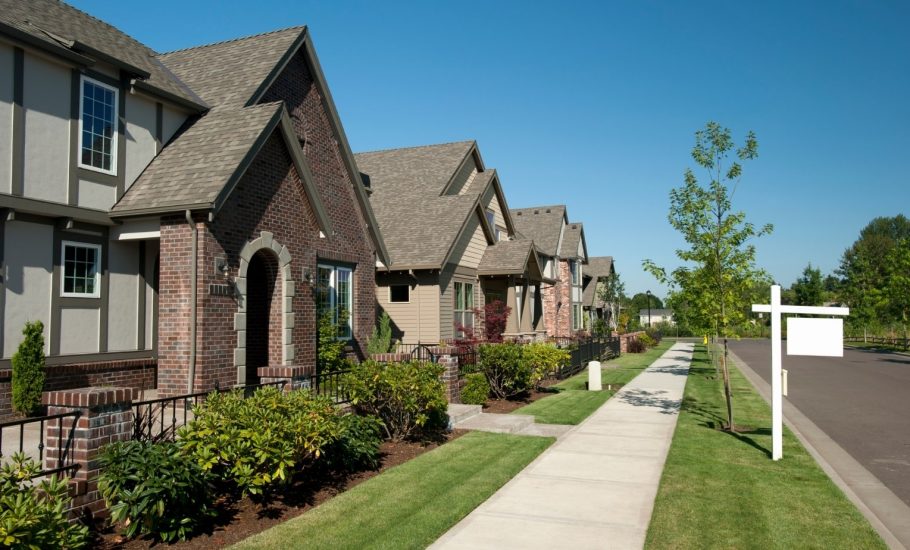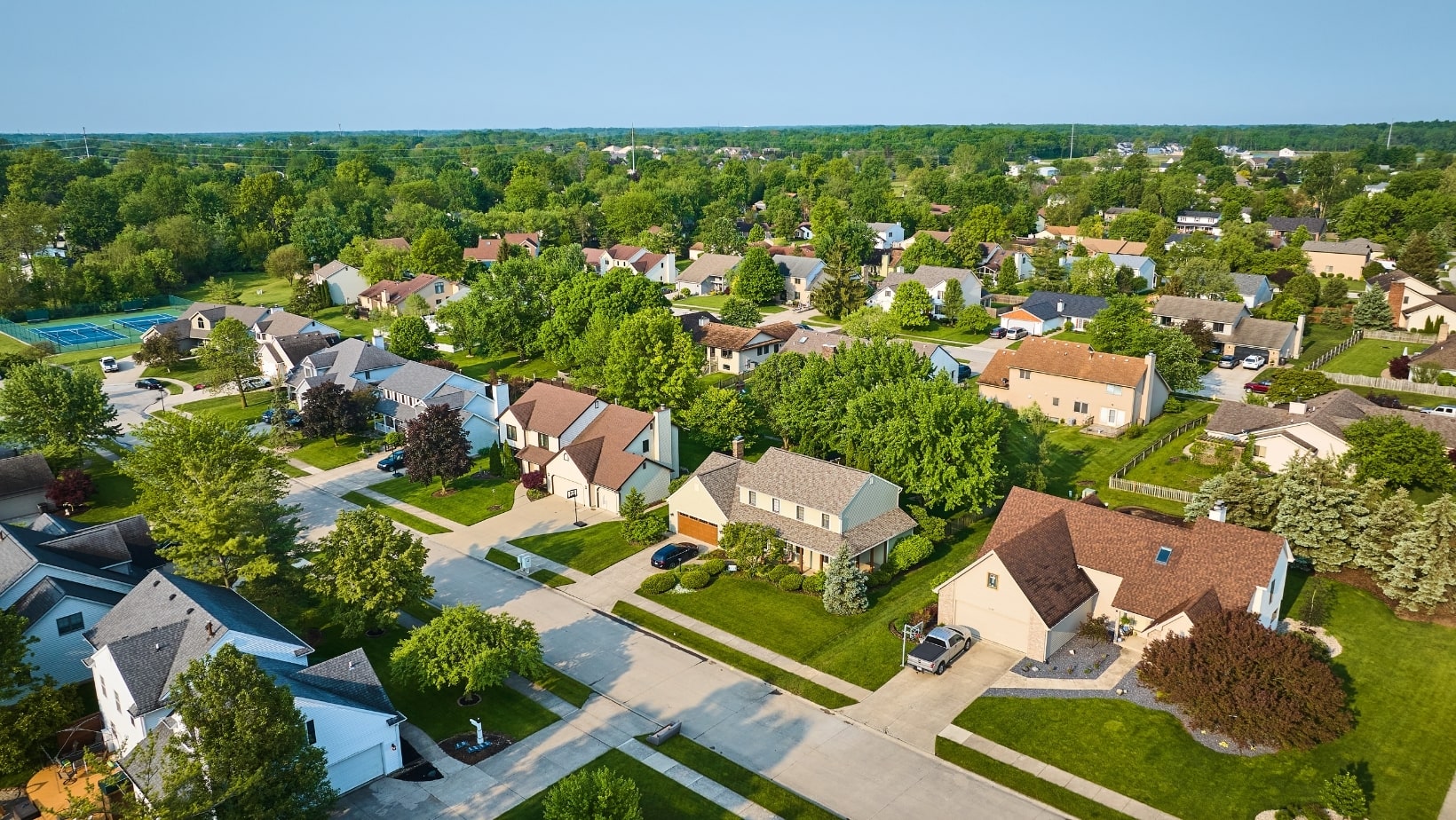Imagine your community pool is closed indefinitely, the fitness center roof is leaking, and the roads are riddled with potholes. Yet, there’s no money in the HOA’s reserves to fix any of it.
This ordeal is all too familiar for many community associations and the solution comes in the form of a homeowners association (HOA) loan.
HOA loans are financial lifelines for neighborhoods facing sudden expenses or planning upgrades. They provide the necessary funds to maintain and enhance common areas.
These loans are essential for making those crucial repairs and improvements without hitting homeowners with huge surprise bills. This results in a neighborhood that’s desirable to live in.
So, let’s jump into everything you need to know about it—what is an HOA loan, why does it matter, and how to get one. We’ll share practical insider tips on the process so you can overcome any challenges along the way.

Decoding the Basics of HOA Loans
Everyone loves to live in a neighborhood that feels like a slice of paradise. The perfectly trimmed lawns, the pool that sparkles in the sunlight, and the garden that bursts with colorful flowers!
All of this is enough to lighten up your mood, even on your worst days. But behind this delightful ambiance is a group of dedicated volunteers – your HOA.
They work tirelessly to improve the community, but sometimes, even the best-planned budgets fall short of covering everything. That’s where a homeowners association loan comes into play.
So, what exactly is an HOA loan? It’s a type of loan a homeowners association borrows to cover costs that the regular budget can’t handle. It’s a financial booster shot for your community.
It’s similar to how you might take out a bank loan to renovate your home or cover emergency medical bills. However, an HOA loan specifically covers the needs of a community. It helps your HOA fund essential projects and handle sudden expenses.
Common Reasons HOAs Might Need a Loan
- Repairs – Every community faces wear and tear over time. Let’s say your community pool, which has been a hit during summer, now needs a new filtration system.Or maybe the plumbing system is due for a major overhaul; these repairs can be pricey. An HOA loan can cover these costs without the need of unexpected special assessments which drain the budgets of the residents.
- Improvements – Maintaining your community isn’t just about fixing what’s broken; it’s also about making it better. Perhaps the HOA board wants to revamp the landscaping or add a new family attraction to make shared spaces more inviting.These improvements can enhance the living experience for everyone. Imagine the excitement of the members when the HOA announces a new community garden or a state-of-the-art playground—all thanks to an HOA loan.
- Unexpected Expenses – Natural disasters can often rip through the neighborhood leading to unforeseen expenses. Whether it’s fallen trees or a blown-away roof due to a storm, the reconstruction can be overwhelming and costly.An HOA loan can offer a timely solution, enabling homeowners’ associations to rebuild and recover without delay. This helps the community restore its charm without the stress of out-of-pocket expenses for homeowners.

HOA Loans vs. Other Loans
You might be wondering, ‘How is an HOA loan different from other types of loans?’ Great question! Let’s have a brief look:
- HOA Loans: These are taken out by the HOAs, representing the collective interests of all homeowners. The repayment comes from regular HOA dues or a special assessment, which means the cost is shared among everyone in the community.
- Personal Loans: These are for individual needs. Maybe you want to redesign your bedroom or go on a dream vacation. The loan is based on your personal credit score and income, and you’re responsible for repaying it from your pocket.
- Business Loans: These are meant for business operations and growth. If you’re running a business, you might need a loan to expand or buy new equipment. The repayment comes from the business revenue.
Here’s a handy table to sum it up:
| HOA Loans | Personal Loans | Business Loans | |
| Purpose | Community projects and expenses | Individual needs | Business operations and growth |
| Borrower | Homeowners Association (collectively) | Individual | Business Entity |
| Repayment | From HOA fees or special assessments | Personal income | Business revenue |
| Approval Factors | HOA’s financial health and reserve funds | Credit score and personal income | Business financials and credit |
The Process of Getting an HOA Loan
Securing an HOA loan isn’t just about paperwork; it’s a journey of strategic planning, community effort, and finding the right financial partner.
Let’s walk through the HOA loan process together to make it manageable and straightforward:
1. Initial Assessment and Project Planning
Before even considering a loan, it’s essential to assess the needs and lay the groundwork within the community:
- Identify the Need for a Loan: Clearly defining the HOA loan requirements will help guide the rest of the process. Start by pinpointing why the loan is necessary.This isn’t just about patching up a few cracks or changing the clubhouse decor. It’s about understanding what long-term projects will truly benefit the community.Knowing exactly what the loan money is for helps everyone understand the importance and urgency of the loan.
- Gather Community Support and Board Approval: It’s crucial to get the whole community in agreement. Hold meetings, discuss the benefits, and secure the approval of other board members to move forward.Without this support, it’s nearly impossible to secure a loan. Have open discussions with the members and get them excited about how these improvements will benefit everyone.
2. Selecting a Lender
Choosing the right lending institution is like finding the perfect dance partner – you need to be in sync.
HOAs have a few options for the types of lenders to choose from:
- Banks: Traditional and reliable, offering a range of loan options.
- Credit Unions: They often provide favorable terms for members.
- Specialized HOA Loan Providers: Experts in HOA needs, these lenders can offer tailored solutions.
Factors to Consider When Choosing a Lender
Here are some steps to ensure you get your hands on one of the most reputable lenders:
- Less Interest Rate: Compare HOA loan rates to ensure you’re getting the best deal at the lowest interest rate.
- Experience with HOAs: Lenders familiar with HOAs can simplify the process by predicting and solving problems beforehand.
- Loan Terms: Look at the repayment period and flexibility. You want terms that fit your HOA’s financial situation without straining the budget.
- Customer Service: Good communication and support can make a big difference. You’ll want a lender who is responsive and helpful.

3. Loan Application Process
Once you’ve selected a lender, it’s time to get your HOA loan application in order.
Here’s how to apply for a loan:
- Gather Required Documents and Records: Collect all necessary paperwork, such as financial statements, project plans, and HOA bylaws. Having these ready will speed up the process by avoiding any interruptions along the way.
- Prepare a Proposal: Put together a comprehensive proposal outlining the project, costs, and how the loan amount will be repaid. This shows the lender that you’re serious and ready.
- Engage with the Chosen Lender: Maintain open communication with your lender. They’ll guide you through their specific requirements and help address any concerns. Don’t be afraid to ask questions to ensure everything is clear and you’re comfortable with the process.
4. Loan Approval and Terms
Lenders have their checklists for approval – make sure to see what they require and understand the terms of your loan.
- Common Criteria for Approval: Lending institutions will look at your HOA’s financial health, the project’s practicality, and the community’s support. Ensure your records are in order and your project is well-planned.
- Understanding Loan Terms: Pay close attention to interest rates, repayment periods, and any other conditions. Make sure you understand the fine print—do you need a long-term loan, or are you okay with a short-term HOA loan?How much will you be paying monthly? Are there any penalties for early repayment? What happens if there’s a delay in the project? Knowing all these details will help you manage the loan effectively.
Challenges Faced by HOAs in Securing Loans
So you apply for a loan and get a check delivered to your doorstep—is it that simple? Not at all!
Getting a loan for an HOA is no small feat. It’s more like an obstacle course, with each hurdle presenting a new challenge that needs to be overcome.
Let’s talk about some of the complications homeowners associations face when trying to secure a loan, and why they’re such a big deal:
1. Financial Health
What if a friend asked you to borrow money? You’d probably want to know a bit about their financial habits first, right?
Banks are no different. They scrutinize the financial health of the HOA, looking closely at delinquencies and reserve funds.
If too many homeowners are behind on their dues, it sends a signal that the HOA might struggle to repay the debt, making loan approval tougher.
2. Financial Records
There are several roadblocks that can trip up an HOA, such as a poor credit history and existing debt. This financial burden can make it really hard to convince a lender to take a chance on the HOA.
Imagine trying to get a personal line of credit (PLOC) in this situation—it’s tough, right? The same goes for an HOA line of credit. Poor financial records stick like gum on a shoe, making lenders think twice about the credit risk.
3. Regulatory and Legal Considerations
Navigating the complex web of legal and regulatory landscape to take out a loan is another big challenge. HOAs need to comply with a ton of rules and regulations, which can vary by state laws and even by municipality.
Missing a step here can cause significant delays or even derail the loan application altogether. So, understanding and adhering to these legalities is crucial to avoid any tailspin moments.

4. Community’s Consent
Imagine throwing a big neighborhood party but forgetting to tell half the neighbors. It’s bound to cause some friction.
Similarly, taking out a loan requires transparent communication and a green signal from the community. If not everyone in the community is on the same page, expect some hiccups in the approval process.
Think of it as rowing a boat—if everyone’s rowing in different directions, you’re not going to get very far.
5. Project Feasibility and Planning
If the lenders are not convinced that the project the loan is funding is well thought out and feasible, they can reject applications for HOA loans.
They require the homeowners’ associations to have detailed and realistic project plans. Vague or overly ambitious plans can be a red flag.
So, HOAs must show they’ve done their homework and that the project is both necessary and achievable.
6. Inconvenient Lender Requirements
Every lender is different; each has their own set of criteria and conditions that must be met. Some banks require collateral, while others might focus on financial ratios.
The lenders might even ask the HOA to pledge common property as security, which can be a significant risk. Meeting these requirements is important and can be challenging; it’s like trying to please a picky eater.
Tips for Successful HOA Loan Approval
Getting a loan approved for your HOA might seem daunting, but with the right approach, it can be much smoother.
Here are some ways you can successfully take out an HOA loan:
1. Strengthen the HOA’s Financial Position
First things first, take a close look at your HOA’s treasures and get your financial planning in order. You want to show lenders that you’re in good shape financially.
Make sure you have sufficient funds to manage the monthly loan payments down the road. This could mean tightening up your budget, cutting unnecessary costs, or finding ways to reduce misconduct.
You could also consider a term loan to help residents keep up with the monthly assessments. The stronger your financial position, the more credible you’ll be to lenders.
2. Build a Strong Case for the Loan
You need to gather all the details about your project and make a compelling case for why the loan is necessary. This means putting together comprehensive project plans.
Highlight the clear benefits and show the potential return on investment (ROI) for the community. Make sure your proposal is detailed and easy to understand.
The more thorough you are, the more confidence lenders will have in your project.
3. Shop Around
I know—it’s tempting to go with the first lender who shows interest, but take your time and compare offers from different lenders.
Look at the interest rates, terms, and any additional fees. Imagine you’re at a farmers’ market. Every stall offers something different, and you don’t want to settle for the first thing you see.
Shopping around can help you find the best deal and save your HOA money in the long run. Plus, it shows lenders that you know your stuff.
4. Be Open with Community Members
Communication is key, and you want to keep everyone informed and involved. The HOA board members must ensure all residents understand the reasons behind the loan and agree on its necessity.
Hold meetings, send out surveys, and provide regular updates to keep everyone in the loop. This open dialogue builds trust and unity, which is crucial for gaining community support.
When the community is well-informed and supportive, it strengthens your case with lenders.

5. Work with Experienced Professionals
If you’re skeptical, don’t go it alone. You wouldn’t want to climb a mountain all on your own; you’d hire experienced guides to help you navigate the treacherous paths.
In the same way, hire consultants, legal advisors, and experts who specialize in HOA loans. Their experience can help you deal with the complexities of the approval process smoothly.
These professionals bring a wealth of knowledge and provide valuable advice that you might not have considered. This can help you foresee and avoid potential pitfalls.
Summing It Up
Alright, let’s wrap things up! We’ve journeyed through the ins and outs of HOA loans—what they are, the hurdles you might face, and some handy tips to get that all-important approval.
Here’s a quick recap:
- Why HOA Loans Matter: They fund essential repairs, capital improvements, and cover unexpected expenses, keeping your neighborhood awesome.
- The Process: It’s all about planning, getting your community on board, choosing the right lender, and nailing that application.
- Overcoming Challenges: Improve the HOA financing strategies, build a solid case, and be transparent with residents.
Need more help with taking out an HOA loan? Reach out to our HOA loan experts, who will provide professional assistance and handle all the exhausting grind on your behalf.



